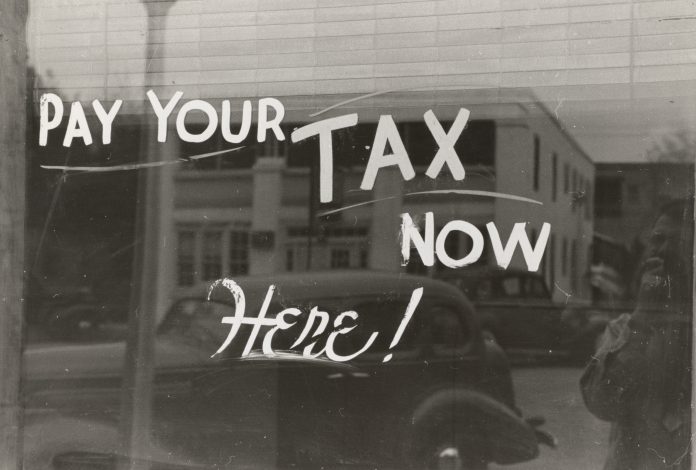Getting ready for the end of the year can be both exciting and stressful. Preparing for family activities, traveling, and wrapping up annual business concerns can quickly consume your time. And running a home-based business can make it that much more difficult to separate your end-of-year work from the holiday madness. Amid all this, it can become easy to either forget or put off your tax preparations until the last minute.
If you’re looking to get your finances sorted before the end of the year, check out these tax tools from Afirmo. With their comprehensive tax software, you can easily manage your finances and ensure you have everything you need for your end-of-year tax checklist before December 31st. If you start early, you can eliminate a lot of unneeded stress when it comes to the upcoming tax season.
This year, before the holiday spirit comes full swing, take a few minutes to work through this quick and simple end-of-year tax checklist. Doing so will make your annual tax filing that much easier.
1. Get organized between your personal and business expenses
Maybe you’ve been scratching down notes about your expenses throughout the year on a piece of paper or in a Google doc. Now, it’s time to sort through those notes. Start organizing and scanning your receipts if you plan on doing itemized deductions. If you start now, you will avoid scrambling to meet the April 15th tax deadline or missing out on valuable deductions.
If you have a bookkeeper, check to see if they have all the documents necessary for your upcoming tax filing. There may be things you are missing or questions they have about your tax strategy that impact how you need to prepare.
As we move into the next calendar year, a great first step toward a sustainable and simple process for handling your expenses would be to have a separate business credit card. This can make things much easier when it comes to doing your taxes. If you put your personal and business expenses on the same credit card, it can be frustrating come tax season to recall each purchase and if it was business-related. Having a business credit card eliminates this hassle. Also, you can earn rewards such as points or cash back when you use your business credit card for your expenses.
To make your accounting even simpler, credit card companies like American Express offer convenient software integrations with Quickbooks and other bookkeeping platforms. With these integrations, your business card transactions will be automatically documented each day. So, when the time comes around again to collect your documents for your tax preparer, you will be able to hand over your information with ease.
2. Take a look at your retirement accounts and tax-deductible donations
Before the year ends, it is important to maximize your retirement and investment accounts. Find out what you’ve contributed to your IRA and how much you can still contribute to maximize your tax benefits. Guidance from a CPA on this matter can be beneficial as what you decide to do may impact your amount of taxable income.
On the flip side, if you decided to take contributions out of a 401(k) or decided to roll over to a Roth IRA, you may owe taxes on this money. This situation would be ideal to speak with a tax preparer about in December so you can make any necessary preparations.
Also, consider any donations you have made in the past year. If you have donated items or money to a non-profit, they should have handed you a receipt for your contribution. An itemized receipt along with the documents from the non-profit will be essential to maximize your tax-deductible donations. If you have donated over $5,000 in items, you may need to obtain a qualified appraisal from the IRS to prove the value of the deduction.
3. Decide if you will submit taxes yourself or work with a tax professional
This is a largely debated topic. Some argue that tax software like TurboTax is simple enough, while others are stern about the need to hire a CPA. In truth, there isn’t a “one size fits all” answer, and it’s best to honestly assess your business’s situation.
First, take a look at your business. Is it a simple business with few needs or do you already know there are likely to be a lot of tax forms involved in your filing? Are you unsure of which forms you will need to fill out? Are you sure you are maximizing your deductions?
If you are unsure about your answers to these questions, it is probably best to hire a qualified CPA. It can seem wasteful to pay someone to do something you can theoretically do for free or nearly free. However, hiring a professional to maximize your tax refund could result in a difference of thousands of dollars in tax benefits.
If it makes you nervous to spend hundreds of dollars on a tax professional, it can be helpful to calculate the value of your time. The IRS estimates it takes the average person roughly 13 hours to complete their taxes. If you estimate your time to be worth more than $40 an hour, you may be better off handing your tax filing to a pro. Not to mention, you have to ask yourself if saving a few hundred dollars up front is worth the hours of stress, headaches over complex tax codes, and potential error on your end that could cost your business?
Conclusion
While every home business owner’s end-of-year tax checklist will look a bit different, you can generally sum up your to-do list in three larger goals:
- Begin organizing your expenses and separating your personal from your business expenses. This will benefit you greatly for your upcoming tax return and future returns.
- Take some time to look into your investment and retirement accounts. Be sure to maximize the benefits of these accounts to reduce the amount of taxable income you owe. Consider getting organized regarding your charitable donations so you have the option to itemize when it comes time to submit your taxes.
- Consider hiring a CPA to evaluate your business needs. A CPA can be a great resource for things like tax preparation, financial analysis, or retirement planning.
Taxes are never fun, but they are a necessary part of growing your business. Whether you need to pay taxes or you will receive a tax refund in April, taxes are an integral part of your business. And unfortunately, many small business owners make mistakes when it comes to their taxes.
Before you get absorbed into the holiday activities, take some time to prepare for the upcoming tax season and for years to come. Your business will run more efficiently, and you can focus on scaling your business rather than on ever-changing tax codes and deductions.
Find a Home-Based Business to Start-Up >>> Hundreds of Business Listings.
















































